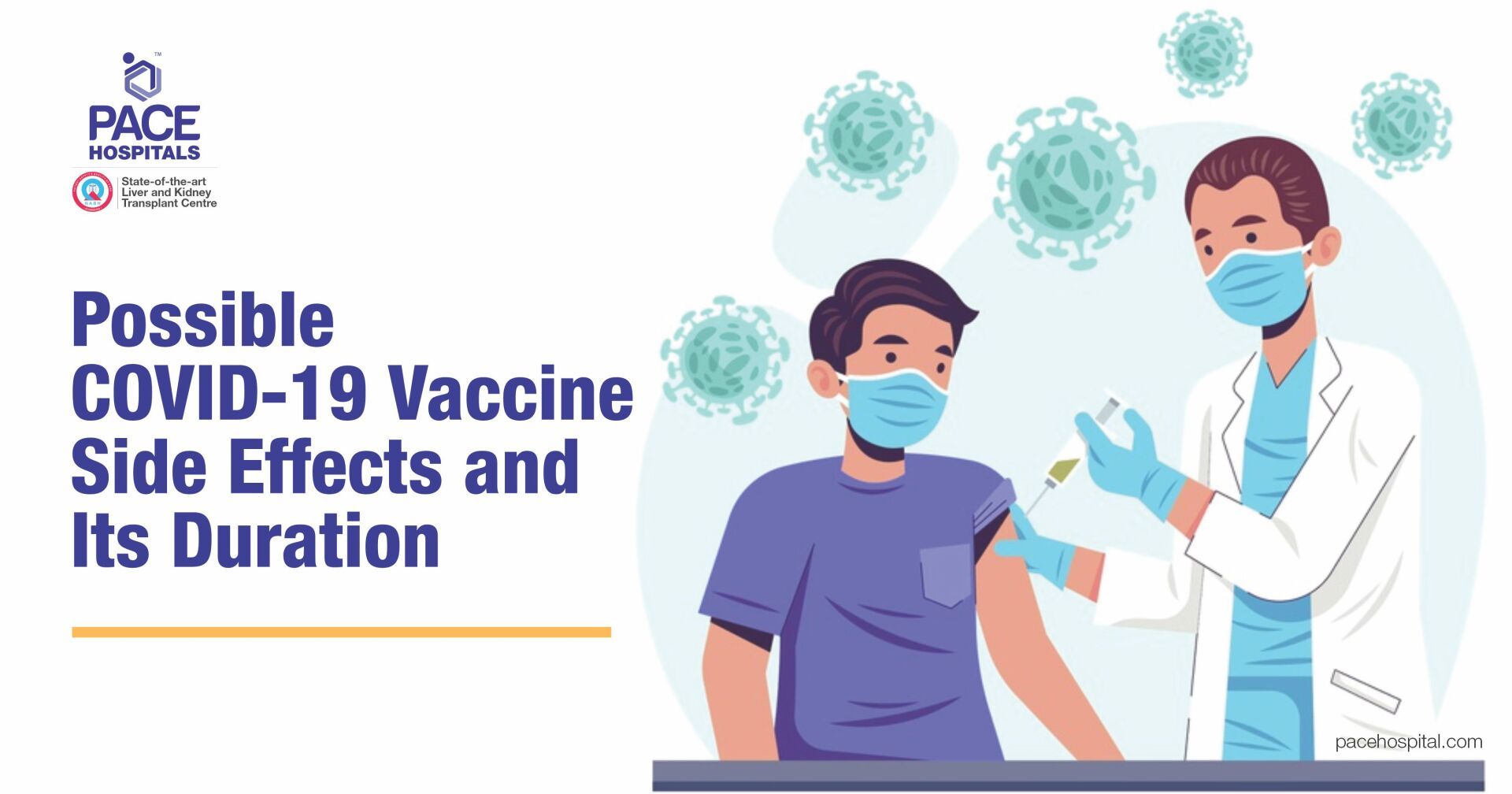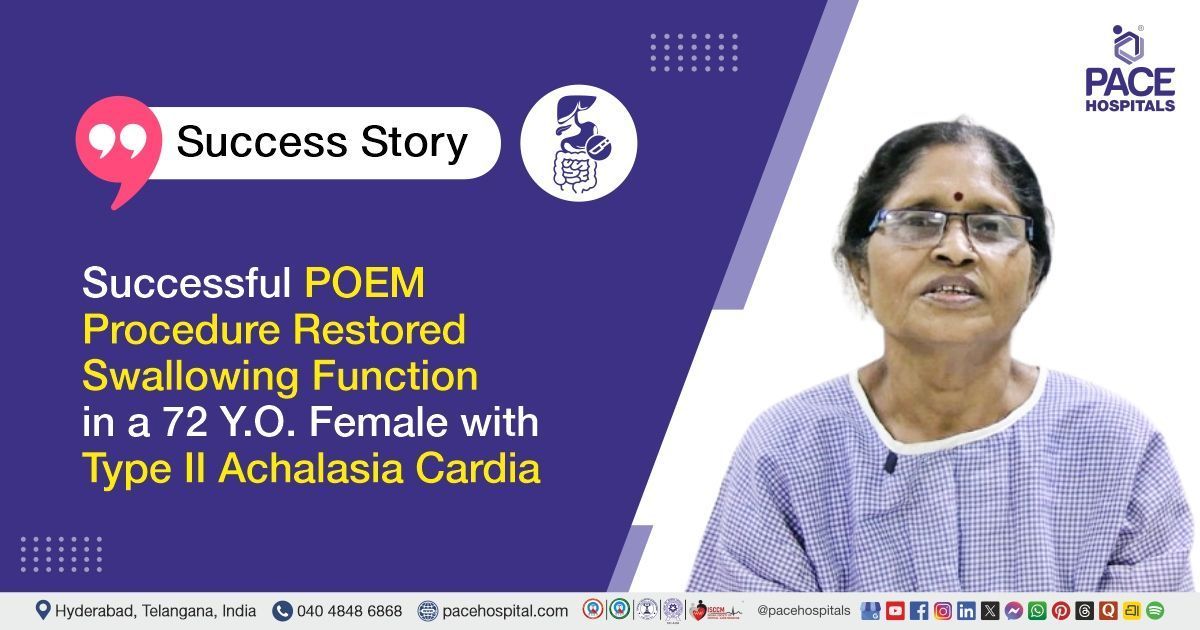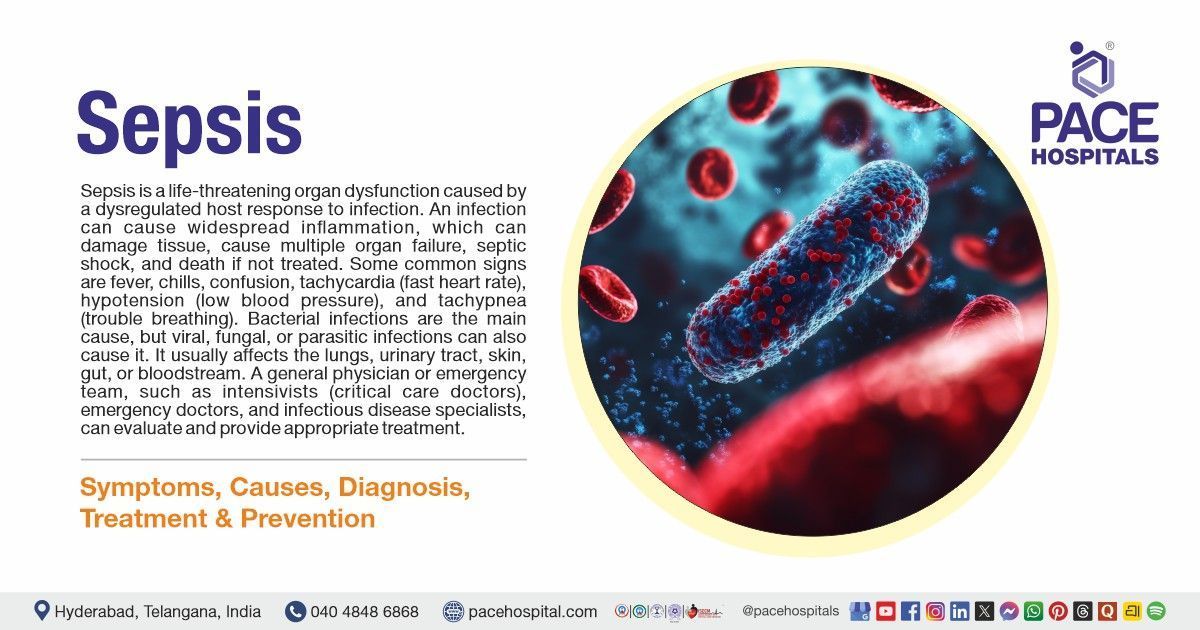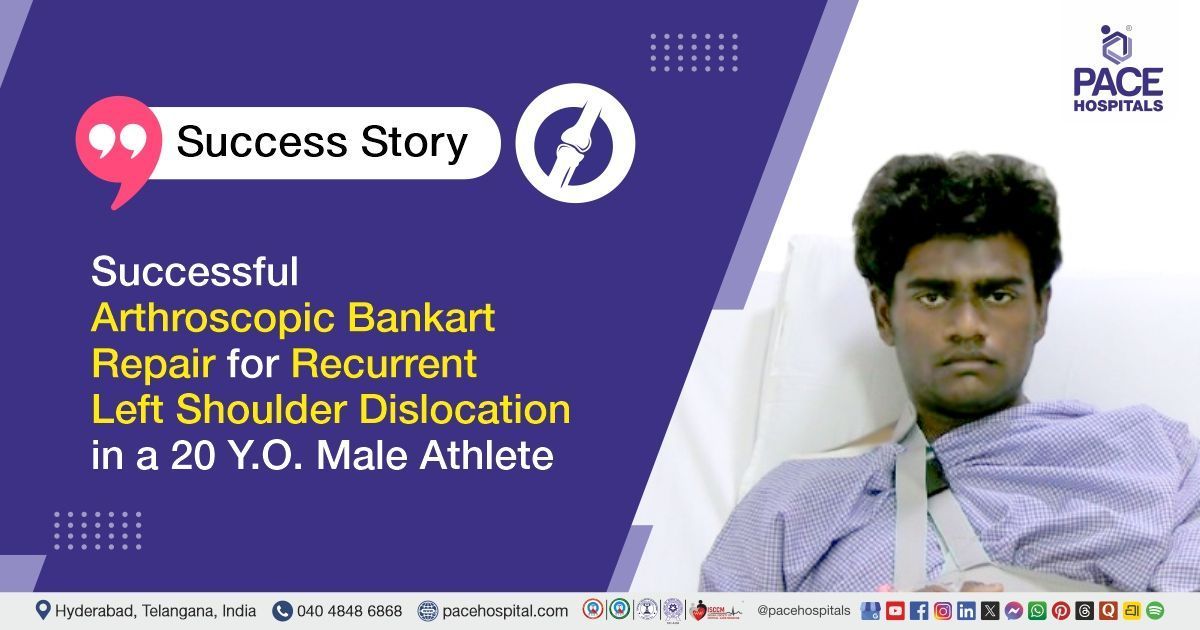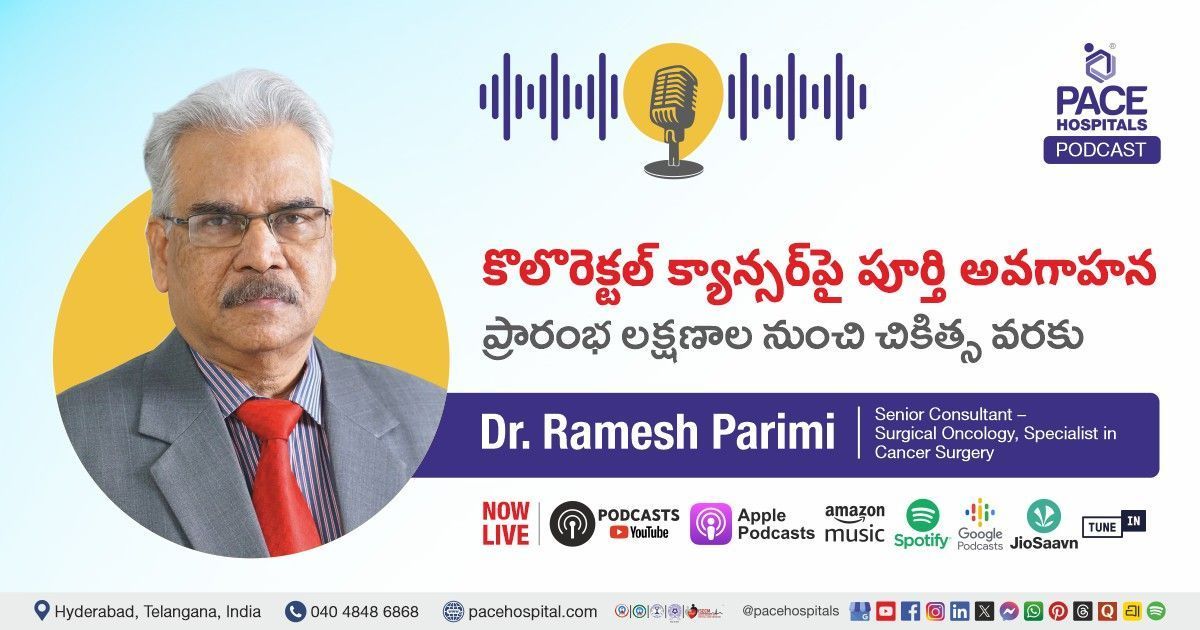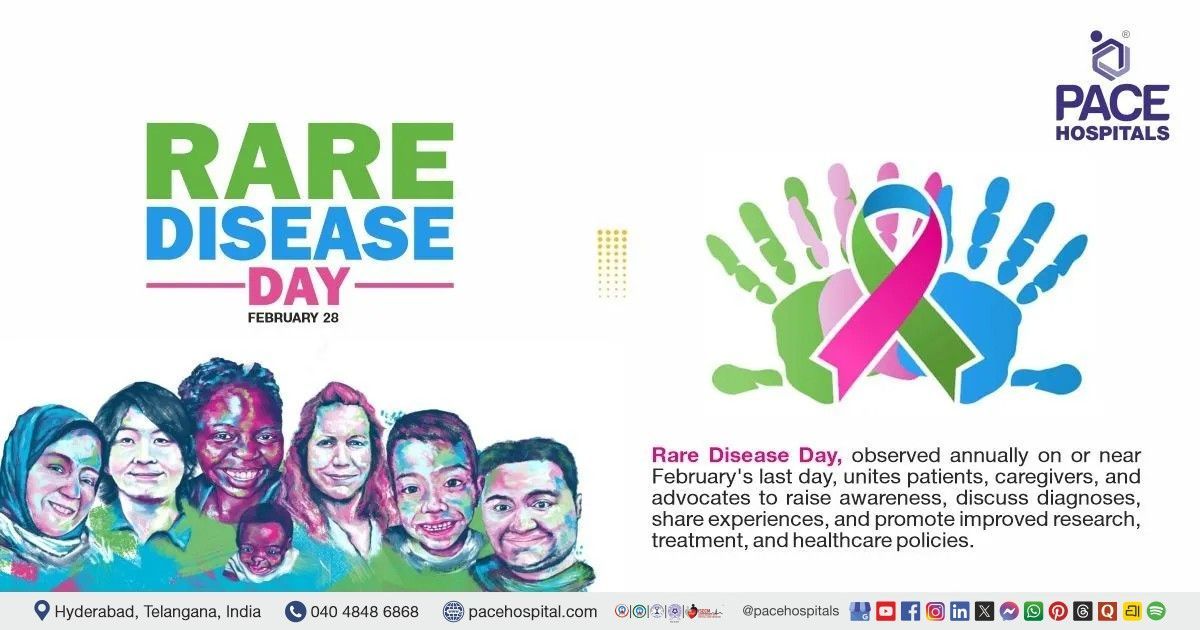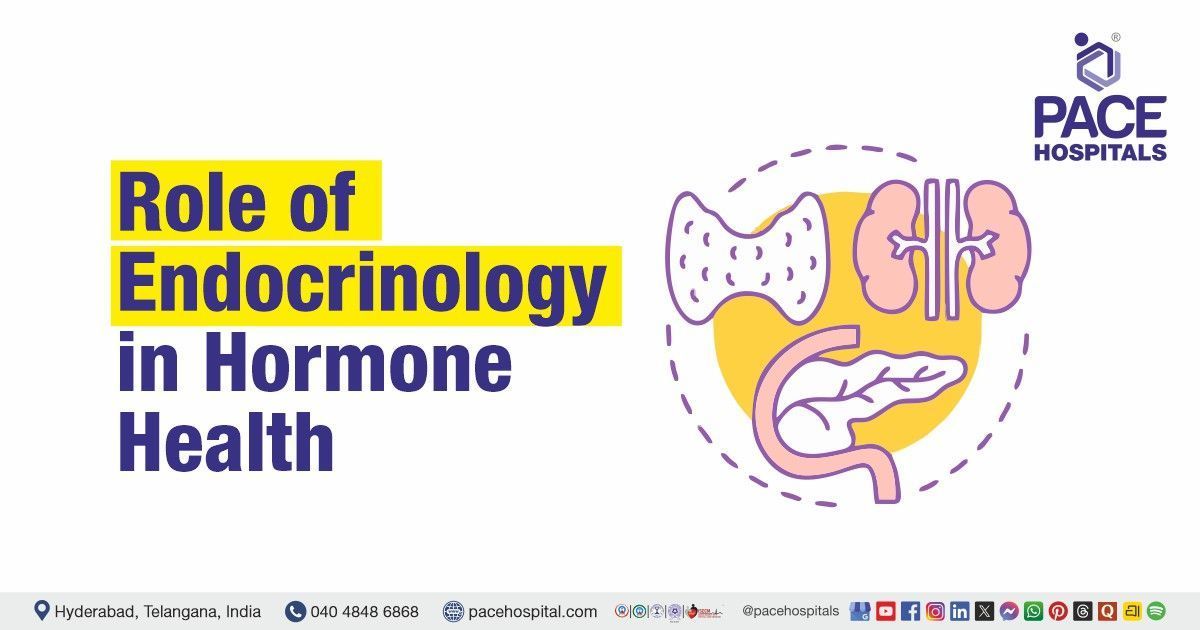List of Possible COVID-19 Vaccine Side Effects and Its Duration
PACE Hospitals
Globally people are continuously putting efforts on developing COVID-19 vaccines to overcome the pandemic situation so that people can go back to their normal life.
Around the world, some COVID-19 vaccines such as The Pfizer/BioNtech Comirnaty - 31 December 2020, The SII/Covishield and AstraZeneca/AZD1222 - 16 February 2021, The Janssen/Ad26.COV 2.S - 12 March 2021, The Moderna (mRNA 1273) - 30 April 2021, The Sinopharm - 7 May 2021, The Sinovac-CoronaVac - 1 June 2021; was listed for WHO Emergency Use Listing (EUL) to reduce the impact and long-term complications caused by Coronavirus (SARS-CoV-2).
Emergency Use Authorization (EUA) is a mechanism that allow vaccines, drugs or medicine to use under medical counter measures during public health emergencies or a pandemic situation.
Emergency Use Authorization (EUA) of COVID-19 vaccines are sanctioned after many rigorous clinical trials, efficacy, laboratory assessments, effectiveness, risks vs benefits, safety and quality production of antibodies.
Initially in Phase 1 clinical trial, the vaccine is given to the small number of healthy participants to understand the immune response, access safety and right amount of dosage.
To analyse safety concerns and short-term risks vs benefits, Phase 2 clinical trial include few hundreds participants with various health conditions from different demographics.
In Phase 3 clinical trial, the vaccine is given to thousands of participants in random manner to collect the critical information related to efficacy, immune response, short term effects and safety concerns.
What are the possible side effects of COVID-19 vaccine?
After the rigorous clinical trials, safety and efficacy data, COVID-19 vaccines will be administered to the general population. As per WHO, COVID-19 vaccines are safe and effective and help people to protect from getting Coronavirus (COVID-19) infection.
Vaccines are created to provide immunity against the life-threatening diseases. As per Ministry of Health and Family Welfare (MoHFW), Government of India, some People may develop mild to moderate side effects due to their immune response after taking vaccine, which is normal. Common mild to moderate side effects usually go away after a few days.
These are some common side effects of COVID-19 vaccine that can affect bodily functions and ability to perform activities:
- Redness, pain or swelling at the site of injection
- Body and muscle pain
- Dizziness
- Malaise, feeling ill, uneasy or discomfort
- Fatigue, feeling tired
- Headache
- Fever
- Chills
- Nausea
- Diarrhea
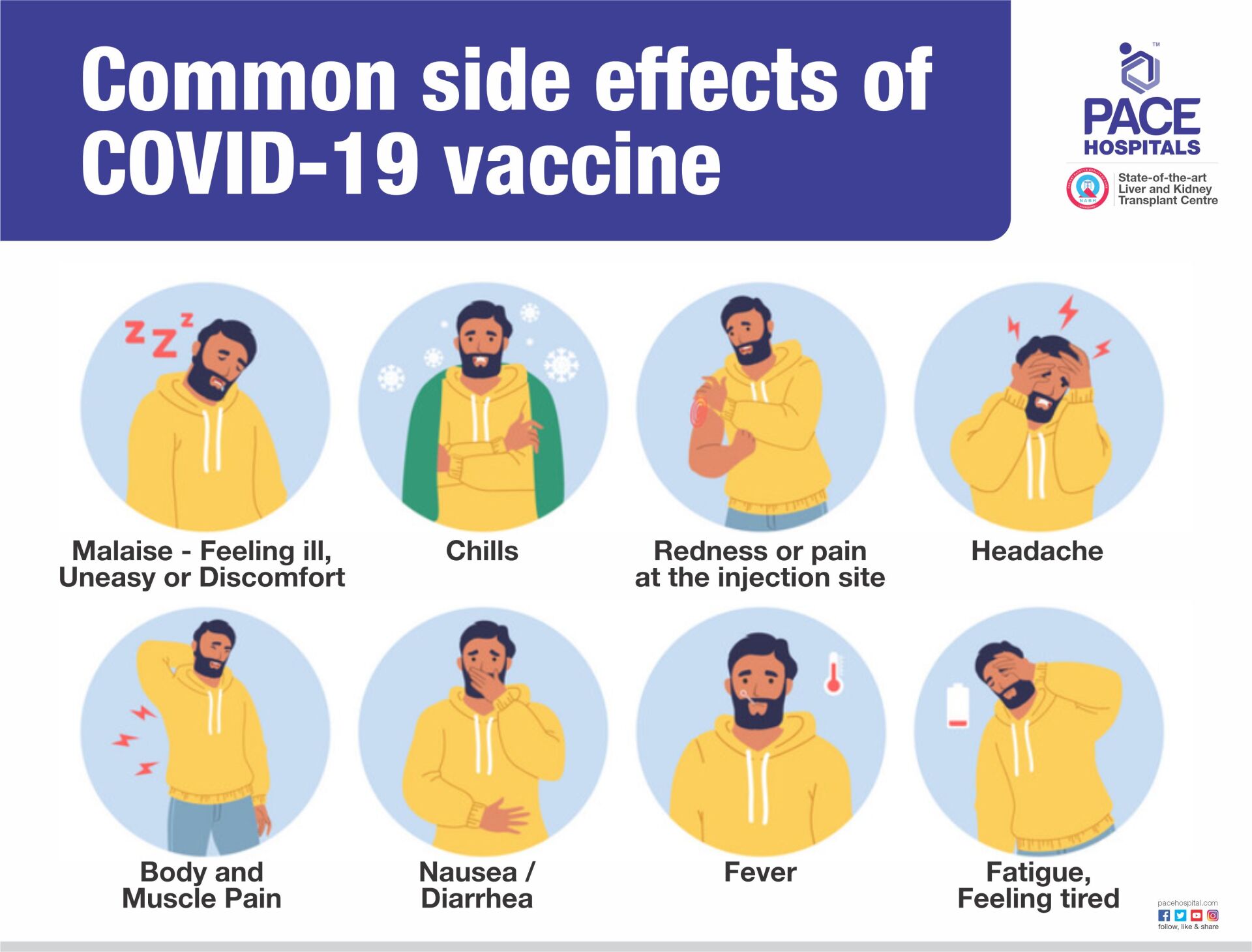
How long do COVID-19 vaccine side effects last?
Usually, COVID-19 vaccine side effects last for nearly 2 to 3 days of getting the vaccine. In some people, side effects can stay for more than 3 days, due to their immune response to the vaccine antibodies.
Some people have not reported with any side effects, it’s totally normal if not having any side effects. Everyone responds differently to the vaccine.
It’s absolutely normal if anyone developed side effects. Vaccines are safe and getting vaccinated will help in protecting against developing severe COVID-19 infection further going into emergency medical situation.
Side effects are more common after the second dose than the first dose. These side effects go away in few days.
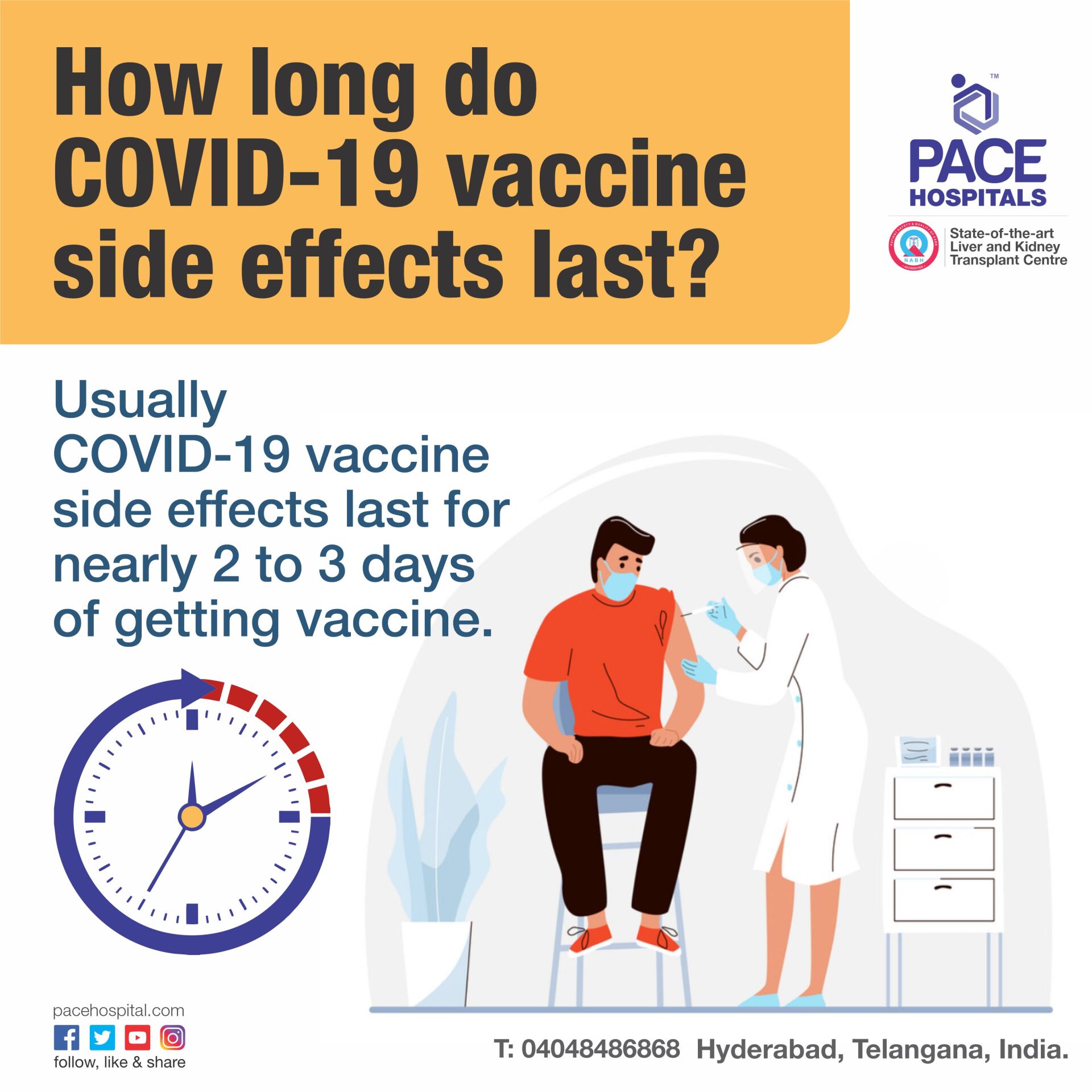
What are the long-term side effects of COVID-19 vaccine?
After taking vaccine, it is advised to stay for 15 to 30 minutes at the vaccination center, so that immediate reaction can be taken into immediate medical attention.
Very rarely, some people may develop long-term side effects of COVID-19 vaccine, that includes:
- Persistent fever with chills
- Acute muscle pain
- Thromboembolism
- Deep vein thrombosis (DVT)
- Severe allergic reactions such as anaphylaxis
Some people reported to have long-term side effects after taking vaccine. After taking vaccine, body develop immunity against the SARS-CoV-2, its possible their immune system is compromised due to other health conditions. In this condition, they should consult their primary care physician and take the medications to overcome from the long-term side effects.
People are having doubt if they take COVID-19 vaccine might develop Coronavirus | COVID-19 infection. COVID-19 vaccines cannot make anyone sick with Coronavirus (SARS-CoV-2), its possible before or after person might have infected with coronavirus. COVID-19 vaccine take few weeks to develop antibodies in the body.
Currently, research is going on and finding more relevant data related to long-term effects of COVID-19 vaccine. Still people are not yet fully vaccinated, we will find information in near future once everyone is fully vaccinated.
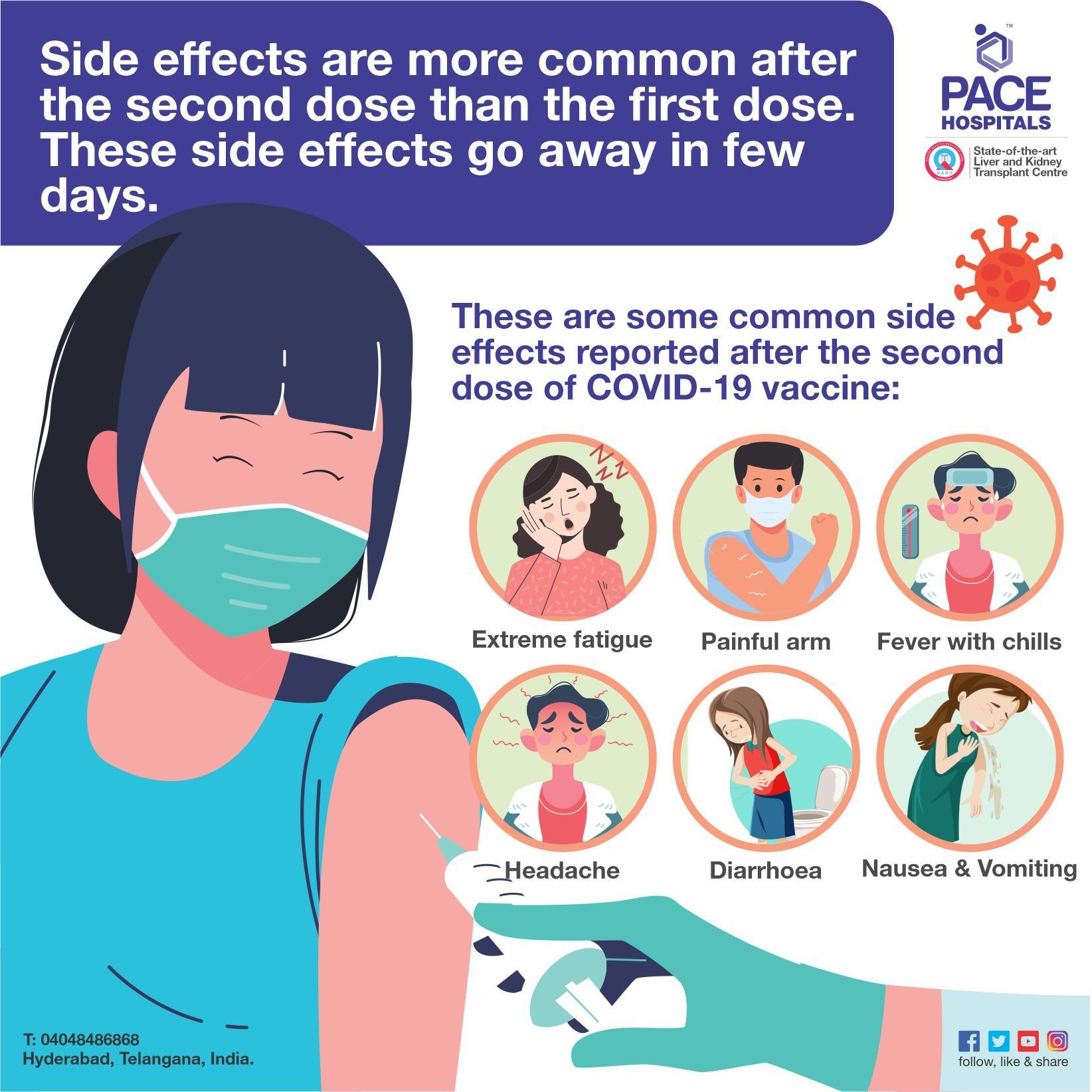
What are the side effects of the COVID-19 vaccine second dose?
Due to aggressive vaccine administration to millions, we are understanding how the body is responding to Coronavirus | COVID-19 vaccines. The first dose teaches the body how to react against the virus.
Side effects reported in many young people than elderly old age people. Older people are less likely to develop any side effects, as per recent data.
COVID-19 vaccine second dose have stronger side effects. These are some common side effects reported after the second dose of COVID-19 vaccine:
- Extreme fatigue
- Painful arm
- Fever with chills
- Headache
- Diarrhoea
- Nausea and Vomiting
Response of immune system after second dose is more robust and side effects are more commonly seen after second dose in many people.
If you have taken COVID-19 vaccine and after leaving vaccination center developed any severe allegoric reaction, seek immediate medical attention.
After fully vaccinated, people can resume their regular activities simultaneously don’t forget to follow precautions like wearing mask, maintaining social distance and regularly wash hands using soap or sanitizer.
Vaccinated people are shown improvements in post covid symptoms. As per recent reports, long covid patients felt better after taking vaccine and saw phenomenal resolution in symptoms.
Share on
Request an appointment
Fill in the appointment form or call us instantly to book a confirmed appointment with our super specialist at 04048486868

